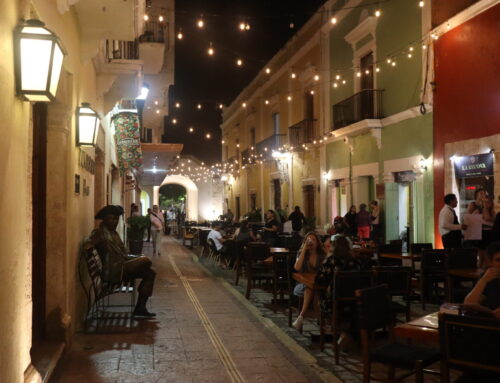Travel is one of those things that don’t really need a justification. Like many of life’s great pleasures, we simply do it for its own sake. However, throughout my own journey, I’ve come to realize that there’s a subtle reason we travel that is oftentimes overlooked or mistaken for something else. I found it on the road like a flower that grows by the wayside. It’s a magical reason that makes travel an addiction with no cure.
Experienced travelers everywhere will tell you that there’s a mystical quality about leaving your comfort zone for the unknown that awakens the dormant spirit within us. The act of traveling has long been recognized as a catalyst for deep transformation and change. Even today, travel has become such a popular way of “finding oneself” that it’s become a cliché.
Yet, behind every cliché, there’s always a grain of truth.
The different stages of travel are analogous with our lifespans. We’re born into a strange land, our eyes wide with wonder and awe at all the new, fresh experiences we discover moment to moment for ourselves, we walk in presence, soaking up everything life has to offer around us until our journey comes to a close, with all the melancholy and sorrows of parting.
There’s a futility to traveling that lends it a poetic quality. Travel experiences tend towards the ineffable. We come back from a trip feeling energized, fulfilled, connected, desperate to share our life-changing experiences —the serendipitous encounters, the deep conversations and lessons of the road, the indescribable beauty of distant sights, the kindness of strangers— with anyone willing to listen. Our friends and family look at us with blank faces, unable to comprehend what we tell them no matter how hard we try to make them understand, and turn the conversation back to the same old mundanities. The moments we live on our journeys are ours and ours alone, so deeply personal that they rob us of the capacity for words— a serious problem if you’re a travel writer.
How we travel is oftentimes a reflection of how we live our lives. Will we live adventurously or will we cling to comfort? Will we be present in the moment or will we be absent somewhere else? Will our hearts be open to whatever the road may bring or will we close them fearfully? Will we experience an anxious need to control or will we surrender to whatever the road may bring?
Travel, as an ongoing experience, only happens in the moment. In order to enjoy ourselves, we’re forced to be there, fully experiencing everything from the exotic foods we taste to the beautiful sights we behold. We must be conscious and aware of the ever-changing, elusive moment in order to fully experience the joys of the road. All we can really do is strive to be, until our trip is no more and it turns to a distant memory, leaving us only with a feeling of contented melancholy.
Throughout our lives, happiness arrives through brief flashes of pure joy and presence. If what we’re really doing when we travel is strive to be present to fully experience our journey, aren’t we really pursuing happiness? Isn’t that what life is all about? To fully surrender ourselves to the sorrows and joys we live on our life’s path to the utmost?
Travel forces us to be present. It provides us with opportunities to expand beyond ourselves and, in so doing, the spirit of adventure within us expands along with it. We become like children again, free to explore the mysteries of life. In travel, our spiritual path merges with our physical journey. Our world becomes spirit and, for the briefest moment, we become blissful, boundless.
And it’s in this brief flash of presence —as we behold a burning sunset over the mountains or, maybe, while we dance the night away on a sandy beach— that we catch a glimpse of our true selves, peeking back at us through the gap between our thoughts as our spirits live the human experience.
Yes, there’s truth behind the cliché. Travel’s greatest gift is, perhaps, it’s loving capacity to teach us to fully be, to realize that our lives are nothing more than a dream of joy expanding in the vast, silent emptiness.
Could there be anything more perfect?



Leave A Comment